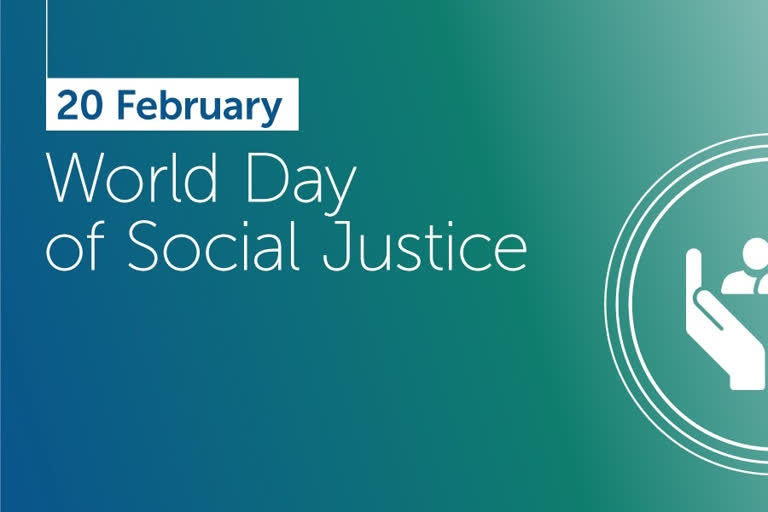Hyderabad: The United-Nations General Assembly designated 20 February to be observed in countries across the world as 'World Day Of Social Justice' in 2007.
World Day of Social Justice is to raise a voice against social injustice and to bring the various communities internationally together to eliminate poverty, gender, and physical discrimination, illiteracy, religious discrimination to make a socially integrated society.
It further recognizes that globalization and interdependence are opening new opportunities through trade, investment and capital flows and advances in technology, including information technology, for the growth of the world economy and the development and improvement of living standards around the world, while at the same time there remain serious challenges, including serious financial crises, insecurity, poverty, exclusion and inequality within and among societies, and considerable obstacles to further integration and full participation in the global economy for developing countries, as well as some countries with economies in transition.
The International Labour Organization (ILO) unanimously adopted the ILO Declaration on Social Justice for a Fair Globalization on 10 June 2008. This landmark Declaration is a powerful reaffirmation of ILO values. It is the outcome of tripartite consultations that started in the wake of the Report of the World Commission on the Social Dimension of Globalization.
Also read: WHO believes badgers, rabbits could have spread Covid to humans
By adopting this text, the representatives of governments, employers’ and workers’ organizations from 182 member States emphasize the key role of our tripartite Organization in helping to achieve progress and social justice in the context of globalization.
The Declaration comes at a crucial political moment, reflecting the wide consensus on the need for a strong social dimension to globalization in achieving improved and fair outcomes for all. It constitutes a compass for the promotion of fair globalization based on decent work, as well as a practical tool to accelerate progress in the implementation of the Decent Work Agenda at the country level. It also reflects a productive outlook by highlighting the importance of sustainable enterprises in creating greater employment and income opportunities for all.
The General Assembly recognizes that social development and social justice are indispensable for the achievement and maintenance of peace and security within and among nations and that, in turn, social development and social justice cannot be attained in the absence of peace and security, or in the absence of respect for all human rights and fundamental freedoms.
2021 Theme: A Call for Social Justice in the Digital Economy
The digital economy is transforming the world of work. Over the past decade, expansion in broadband connectivity, cloud computing, and data has led to the proliferation of digital platforms, which have penetrated several sectors of the economy and societies. Since early 2020, the consequences of the COVID-19 pandemic have led to remote working arrangements and allowed for the continuation of many business activities, further reinforcing the growth and impact of the digital economy.
The crisis has also laid bare and exacerbated the growing digital divide within, between and across developed and developing countries, particularly in terms of the availability, affordability and use of information ICTs and access to the internet, deepening existing inequalities.
A Few Facts
- Employment growth since 2008 has averaged only 0.1% annually, compared with 0.9% between 2000 and 2007.
- Over 60 per cent of all workers lack any kind of employment contract.
- Fewer than 45 per cent of wage and salaried workers are employed on a full-time, permanent basis, and even that share is declining.
- By 2019, more than 212 million people were out of work, up from 201 million in previous years.
- 600 million new jobs need to be created by 2030, just to keep pace with the growth of the working-age population.



